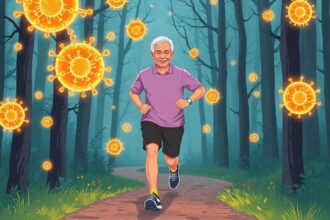Explore how timing herbal remedies with circadian rhythms can enhance their efficacy, improve stress management, sleep, and overall well-being.
Discover how aligning herbal remedy intake with your body’s natural rhythms can maximize health benefits and improve overall well-being.
Introduction to Chrono-Herbalism
Chrono-herbalism is an emerging field that combines the ancient wisdom of herbal medicine with modern scientific understanding of circadian rhythms. This approach suggests that the timing of herbal remedy intake can significantly influence their efficacy. According to a study published in the Journal of Ethnopharmacology
, the body’s response to herbal compounds varies throughout the day due to fluctuations in metabolic processes and hormone levels.
Understanding Circadian Rhythms
Circadian rhythms are 24-hour cycles that regulate various physiological processes, including sleep-wake cycles, hormone release, and metabolism. These rhythms are influenced by external cues like light and temperature. Research from the National Institutes of Health
highlights that aligning herbal intake with these rhythms can enhance the body’s ability to absorb and utilize herbal compounds effectively.
Optimal Timing for Key Herbs
Ashwagandha: Known for its adaptogenic properties, ashwagandha is best taken in the morning to help manage stress and boost energy levels. A study in the Indian Journal of Psychological Medicine
found that morning intake of ashwagandha significantly reduced cortisol levels, a stress hormone.
Turmeric: This anti-inflammatory herb is most effective when taken with meals, particularly lunch, to aid digestion and reduce inflammation. The Journal of Medicinal Food
reports that curcumin, the active compound in turmeric, is better absorbed when consumed with fats.
Ginseng: Ginseng is ideal for afternoon consumption to combat fatigue and enhance cognitive function. Research in the Journal of Ginseng Research
indicates that ginseng’s stimulating effects are more pronounced in the afternoon, aligning with the body’s natural energy dip.
Practical Tips for Incorporating Chrono-Herbalism
To integrate chrono-herbalism into your daily routine, consider the following tips:
- Take ashwagandha in the morning to start your day with reduced stress.
- Incorporate turmeric into your lunch to maximize its anti-inflammatory benefits.
- Consume ginseng in the afternoon to boost energy and focus.
Future Directions in Chrono-Herbalism Research
The future of chrono-herbalism lies in personalized medicine. Advances in genetic testing and wearable technology may soon allow for tailored herbal regimens based on individual circadian rhythms. As noted in a press release from the American Herbal Products Association
, ongoing research aims to develop algorithms that can predict the optimal timing for herbal intake based on personal health data.




